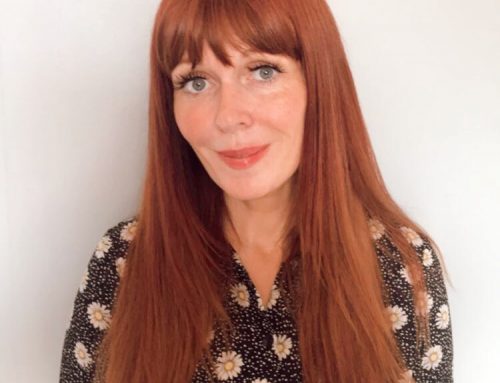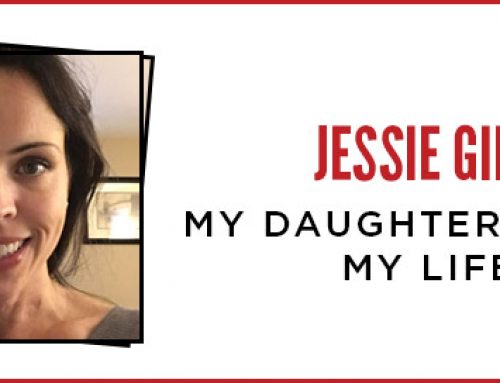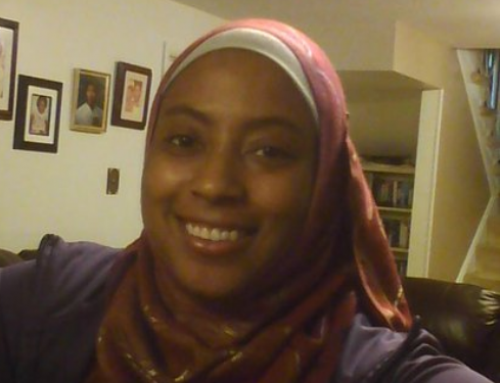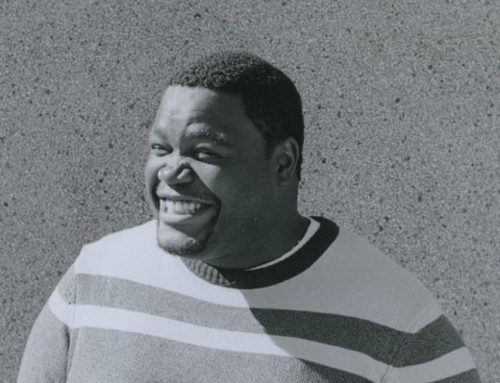Mental illness has always been familiar to me. My mom has lived with depression and anxiety for the majority of her life. There were days she wouldn’t get out of bed, but would remain curled up with her tattered red robe, with a pillow over her head. My sister and I learned to play quietly enough to not disturb her, and managed many of our daily tasks on our own.
After years of therapy, medication management, and self-exploration, I am proud to say my forty-one year old mother is happy, and recently married her boyfriend of eight years. It took her a very long time to get here.She had always told me and my sister, that she didn’t want us to end up like her; a teenage mother with only a high school degree, stuck in a toxic relationship, and a job she hated. We vowed we would do better.
When I began exhibiting symptoms of depression at age fifteen, I approached my dad with my concerns, not wanting to worry my mom. He responded by claiming I wasn’t crazy like her. After that, I hid in my darkness for awhile. Things got significantly better when I left my dad’s house my senior year of high school to move in with my mom and her boyfriend full-time. My mom helped me find a therapist to see regularly, wherein I began to unpack my anxiety, depression, and my father’s abusive tendencies. My mom never shamed me for needing extra help, and she and her boyfriend provided an open, engaging, and often dysfunctional environment. I began planning my future, excitedly and mostly thrived, only to be taken down by boy issues
The summer after I graduated from high school, I was put on my first SSRI, Zoloft. I never felt shame about being on meds, since my mom had always referred to her anti-depressants as her “happy pills,” therefore normalizing them. I followed suit and was convinced I would get through this. I knew I had a solid support system and endless ambition.
Everything changed.
Just a few weeks into my first year at the University of Minnesota, on September 20, 2013, I was raped by a fellow classmate. He got me alone in my dorm room that afternoon to watch a movie. I said no repeatedly, I tried to start an argument to shift the mood, and finally I felt like I gave in. I’ve written about my first rape extensively on my own blog, because almost three and a half years later, this affects my life every single day.
I can’t even describe how disgusting I felt after the assault. I had cleaned every inch of my dorm room and scrubbed my vulva until I believed there was no evidence of him on me. I waited a week to report this to my school. I waited nine days to tell my mom. I felt like telling her I had been raped would disappoint her, and it would make my rape real. I was working through my mental illnesses and a breakup with my high school sweetheart; I felt I had enough on my plate.
When I told my mom, I was relieved. She and I cried over the phone. She asked me why I didn’t tell her sooner, and I just sobbed harder. She attended my post-rape checkup the following day, and held my sweaty palms in her hands while I went through the re-traumatizing process of reporting my rape to the University. She reaffirmed that she was there for me, and that I could lean on her.
My perpetrator was ultimately found responsible for violating the Student Code of Conduct, and was sanctioned with mandatory counseling sessions, an essay on consent, and one year of academic probation. He violated my body, and didn’t even receive a slap on the wrist. I was told I could appeal the sanctions, but was discouraged from doing so.
I felt like my life and my world had ended. I felt so much shame for not throwing him out of my dorm room, for not screaming, for not saving evidence to report to the police. My advocate at the Aurora Center, a center for victims of sexual and domestic violence, gave me words of encouragement; she told me the two common stress responses of fight or flight did not include the incredibly legitimate response of freeze.
After my assailant’s sanctioning, I felt pressured to return to normal life. I became hypersexual and had sex with many men, settling with a boy who would distract me from my pain. I missed classes often, fearing I’d run into my assailant. I didn’t understand the severity of panic I felt whenever encountering him. I don’t know how I made it out of that semester alive, but I persisted. The only positive thing I can remember is being introduced to my mentor in the journalism school. They had been my TA in a class, and I greatly admired them. After the semester ended, they disclosed they too had a history with sexual violence. I don’t know why I never expected people I practically idolized to be immune to trauma. They began to make me feel I was not alone.
Spring semester was worse. I had no understanding of my emotions, thoughts, and behavior. I couldn’t acknowledge this trauma had changed me. I occasionally had counseling sessions with a grad student at the university. She was kind, and listened to me talk about my life, but she would cry during our sessions. I began to believe I was too dark, too strange, and too much for the rest of the world. I rarely attended classes. Instead, I curled up on my boyfriend’s futon all day, watching West Wing on my laptop. He noticed. Since the primary thing bringing us together was sex, we lost our connection. He broke up with me the day after Valentine’s Day.
I didn’t have a distraction anymore. I wallowed, I self-isolated and self-harmed. I began to plan my suicide. I felt like a burden to everyone. I knew someone who could easily provide pills I could use to overdose. On February 25, 2014, I mentioned in my pre-counseling session survey that I was dealing with suicidal ideation. My counselor confronted me on this, and when I told her I needed her to make the decision on my hospitalization, she called my mom to pick me up and take me to the hospital.
My mom bought me lunch before. She was stoic, and she spoke to me calmly, but I could see her red, puffy eyes and the tear stains running down her face. I was only in the hospital for a few hours. I promised I wouldn’t hurt myself if I was under my mom’s care. I couldn’t ever do that to her. Per the psychiatrist’s request, I moved back home, I withdrew from school, and I began an outpatient day treatment program, and returned to the therapist I’d seen my senior year of high school.
I worked through all my therapy, because my life depended on it. I was finally given a diagnosis of Post-Traumatic Stress Disorder, but had basically no knowledge of how PTSD really functioned. I hated that I wasn’t in school, and felt like I was being held back. By May, I had convinced myself I was fine, and enrolled in a class for the summer, taught by my mentor. I loved the class and felt like my normal self again. For my final project, I wrote a blog post disclosing publicly that I had been sexually assaulted and I created YouTube video to go along with it. I received an overwhelming amount of support from my classmates and others after I went public. People from all over the country were reaching out to tell me I wasn’t alone.
I returned to school full-time in the fall. On September 13, 2014, seven days before the anniversary of my first assault, I was drugged at a party, abandoned by my friends, and raped again. I found out what had happened over Facebook. An acquaintance told me I got drunk and had sex with some guy, but the guy seemed nice so it didn’t matter. Then I saw a photo of most of my clothing and puke, with a caption mocking the girl who had had sex in their bedroom and threw up everywhere, wanting to hold them accountable. Since most of my belongings were at this house, I had my roommate call my mom. I was drowning in my own tears and panic. I kept screaming “this can’t happen again” repeatedly. My roommate stayed with me until my mom picked me up. She brought me to the hospital for a rape kit and stayed by my side, hugging me as I cried.
Police interviewed me. The first thing they asked was “how do you know anything even happened?” I stopped crying, gave them a quick anatomy lesson, only to be dismissed. An investigator was assigned to my case. He barely made time for me, and I did not have the energy to fight this alone. I didn’t know who raped me and whether or not they were on my campus. My mom fought for me. She made remarks that Ice-T could do a better job than my investigator. By early October, the Minneapolis Police Department declined to press charges, so I assumed the case was closed and I could at least find out the name of my perpetrator. The police department fought me at every turn. My mom and I got in contact with the head of the Sex Crimes Unit, who told me he would not feel responsible for me feeling victimized. Police officers told a journalist off the record, that I had been on antipsychotics, had a psychotic break, had consensual sex and just didn’t remember it.
On campus, I was often harassed by my second perpetrator’s friends. My friends would continue to go to that house for parties, or spend time around those people and would attend parties at my first rapist’s fraternity. They threw me a birthday party and invited two people who lived in the house and had never acknowledged what what had occurred in their home. I couldn’t even begin to explain my frustration and how little I began to feel about myself. Rape me once, shame on you. Rape me twice, shame on me. I began getting drunker than I normally would while going out. I had sex with many men. I consumed what I could to make me feel less empty inside.
Eight months after my initial police report, an investigator from the University of Minnesota Police Department contacted me, claiming my perpetrator had assaulted someone else. I finally had a name of my assailant. This investigator had my case transferred to him, and went back to the beginning. He re-interviewed everyone and discredited their stories. He submitted his findings to a prosecutor, who declined to press charges. I felt broken. I felt like my rape wasn’t violent enough to really be considered rape. I developed incredibly complicated feelings while seeing other victim-survivors I cared about receive some sense of justice. Resentment boiled inside me, against my will and I tried every day to challenge it. Some days, resentment wins.
I dropped out of the University of Minnesota for good, in the fall of 2015. What I had once considered to be my campus, had become a place where an assailant’s education mattered more than a victim’s. I brought bad press to the university and I know the administration was happy to see me gone.
My mom supported my decision, as she always did. She told me she just wanted me to be well. I began EMDR with a therapist I was seeing, but wasn’t stable enough to focus on it as much as I would’ve liked. Without school, I worked part-time in retail. I felt unfulfilled. I entered a relationship that turned toxic very quickly and has created issues between me, my family and my friends. In October, 2016, I moved back to my mom’s house after a breakdown. I have felt like a disappointment. I know I have hurt my mom. She has become exasperated, claiming she doesn’t know what to do with me, and expressing her fears that I might never be a functioning adult. She has on more than one occasion threatened to make me homeless. This isn’t the relationship I am used to.
The best explanation I’ve been able to give my mom, in an effort to repair our relationship, was to talk about what PTSD has done to me. I wrote her a letter, because I knew I wouldn’t be able to have this conversation without bursting into tears. I told her being diagnosed with PTSD is like being diagnosed with a brain tumor. It alters your brain function, which is even visible on brain scans. Healthcare providers don’t always have enough information to cure it. Progress in treatment isn’t always linear. Recovery is a fight for your life.
I’ve begun looking into PTSD from more of a research standpoint. I know what my triggers are and I understand I was traumatized. I need to begin to understand how this has affected me neurologically, so I can be fully armed to fight this. I completed another 3 month bout of outpatient therapy and am seeing an individual therapist weekly, and seeking out support groups of other victim-survivors. I don’t quite know where I’ll go from here, but I’m not going down without a fight.
 Courtney Blake is a twenty-something writer and aspiring advocate for victim-survivors of sexual violence. She is hoping to finish her Bachelor’s degree in Journalism/Mass Communications within the next few years so she can move onto her Master’s degree. In her spare time, she bakes, tweets her sometimes controversial pop culture opinions, and enjoys having full conversations with her cat, Bingley.
Courtney Blake is a twenty-something writer and aspiring advocate for victim-survivors of sexual violence. She is hoping to finish her Bachelor’s degree in Journalism/Mass Communications within the next few years so she can move onto her Master’s degree. In her spare time, she bakes, tweets her sometimes controversial pop culture opinions, and enjoys having full conversations with her cat, Bingley.







Super grateful for this post. Thank you for sharing your lived experience. It makes me reflect on my own experiences and moving forward….
Xoxo
I just read the story in City Pages. Thank you for taking a stand; I have no doubt that you helped many people by having your story told. .
Dr. Mic Hunter
(author of Honor Betrayed: Sexual Abuse In America’s Military, & Abused Boys: The Neglected Victims Of Sexual Abuse)